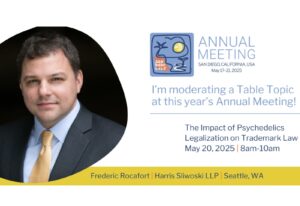Psychedelic retreats abroad: the legal landscape
With the United States classifying most psychedelics as Schedule I substances, many facilitators are exploring opportunities abroad to conduct spiritual plant ceremonies. Jamaica and Mexico frequently emerge as popular destinations for these retreats. While these countries, and others, may offer more permissive legal frameworks, they present unique risks under both foreign and domestic laws. Such risks require careful navigation to ensure retreats are conducted properly, safely, and ethically.
U.S. legal implications: the Controlled Substances Act
Several federal courts have upheld an 11th Circuit decision establishing that when there is no intent to import controlled substances into the United States, the U.S. Controlled Substances Act (CSA) does not apply to activities conducted outside of the U.S. This means that facilitators organizing psychedelic retreats abroad would generally not face liability under the CSA for the retreat activities themselves.
However, this protection may dissolve if participants attempt to bring controlled substances back into the United States. There may also be increased legal and practical implications for non-US citizens who are legal residents participating in foreign psychedelic retreats. Given the rise in federal enforcement targeting Green Card and visa holders, non-U.S. citizen legal residents should carefully consider the potential risks of traveling abroad to attend a psychedelic retreat. For some additional information, check out “Psychedelics and U.S. Immigration Law” .
Navigating foreign laws and religious use exemptions
Jamaica: A legal gray area
Psilocybin is classified as a controlled substance under the 1971 Convention on Psychotropic Substances. Signatories to this convention are obligated to restrict psilocybin use to medical, scientific, and industrial purposes. Most countries implement this restriction through their controlled substance schedules. Jamaica, while a signatory to the 1971 convention, has not placed psilocybin, or mushrooms containing the substance, on its list of scheduled substances. This has created a regulatory gray area that has attracted numerous psychedelic retreat operations.
However, the legal status of psilocybin in Jamaica is not straightforward. While retreats have become popular in the small island country, enforcement is subjective. Anyone planning to operate a psilocybin retreat in Jamaica must understand the realities on the ground. This uncertainty requires facilitators to engage with responsible local partners that have strong relationships with local authorities.
Mexico: religious and indigenous exemptions
In Mexico, DMT, MDA, MDMA, mescaline (including peyote), psilocin, psilocybin, and others are classified as Schedule I substances. The possession, trade, and use of these substances are prohibited unless authorized for medical research purposes or qualify for an exception based on indigenous customs and practices.
Mexico’s religious use exemption applies only to specific substances and requires that usage comply with the customs and traditions of Mexico’s indigenous and Afro-Mexican peoples and communities. This means that facilitators must ensure their retreats authentically align with these traditional practices rather than simply appropriating cultural elements as a legal shield.
Therefore, if you intend to conduct a psychedelic retreat in Mexico, it is essential to verify that your retreat and the associated use of psychedelic substances genuinely comply with Mexico’s religious use exception. Failure to do so could result in liability under Mexico’s controlled substance laws, potentially leading to severe penalties.
Other countries: varied legal frameworks
Many countries worldwide have reduced or eliminated penalties for possession and use of certain psychedelics. Some have decriminalized specific substances, while others have established medical and religious exemptions to criminal enforcement. As with Mexico and Jamaica, before conducting a foreign retreat, it is imperative to thoroughly research applicable laws and ensure your retreat complies with local regulations.
U.S. liability when conducting foreign psychedelic retreats
While the CSA may not apply to facilitators conducting psychedelic retreats abroad, this does not grant complete immunity from U.S. liability. Facilitators could still face civil or criminal liability under U.S. law, including if:
- A participant suffers harm during the retreat
- Someone experiences adverse reactions to a psychedelic substance
- A participant attempts to bring psychedelics back into the United States
- Claims of injury or psychological distress emerge after the retreat concludes
While no agreement can provide absolute protection against liability, comprehensive participant agreements and co-facilitator agreements can significantly mitigate risks. These documents should, among other things:
- Clearly outline expectations for both facilitators and participants
- Properly disclaim and assign liability
- Explicitly detail the legal obligations that participants and co-facilitators must adhere to
- Include informed consent provisions regarding the risks involved
- Informing non-U.S. citizen legal residents of the heightened risk of their participation in a foreign retreat
- Establishing protocols for handling emergencies and adverse reactions
Ethical considerations for safe and responsible retreats
Beyond legal compliance, facilitators have an ethical responsibility to ensure retreats are conducted safely and responsibly. This includes, in part:
- Thorough participant screening
- Informed consent
- Proper facilitation training
- Integration support
- Cultural respect by honoring the indigenous traditions
- Environmental responsibility
- Taking a harm reduction approach
Conclusion: balancing opportunity with responsibility
Conducting psychedelic retreats abroad can offer meaningful opportunities for facilitating transformative experiences while navigating the constraints of U.S. drug policy. However, these opportunities come with significant legal and ethical responsibilities that require careful consideration and planning.
The foundation of any properly conducted psychedelic retreat rests on three essential pillars:
- Legal Compliance: Understanding and adhering to both domestic and foreign laws governing psychedelic substances and their use.
- Participant Safety: Implementing comprehensive screening, monitoring, and support systems to ensure the physical and psychological wellbeing of all participants.
- Ethical Practice: Maintaining the highest standards of integrity, informed consent, cultural respect, and professional conduct throughout the retreat process.
By developing robust participant agreements, adhering to local laws, implementing thorough safety protocols, and maintaining an unwavering commitment to ethical practices, facilitators can create transformative experiences while minimizing legal exposure and, most importantly, protecting and enhancing the wellbeing of those they serve.
Our attorneys at Harris Sliwoski can provide comprehensive guidance to clients seeking to conduct foreign psychedelic retreats. Whether its advising facilitators on conducting safe, compliant, and ethical foreign psychedelic retreats, or drafting agreements that properly assign liability while promoting best practices in participant care and safety. Our goal is to help you navigate this complex landscape with integrity and responsibility. This will ensure that your retreat not only complies with applicable laws, but upholds the highest standards of participant wellbeing and ethical conduct.

























